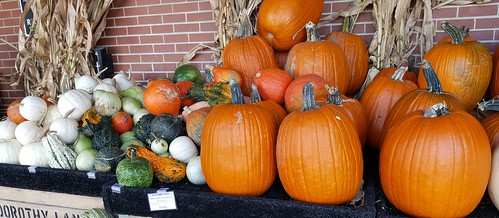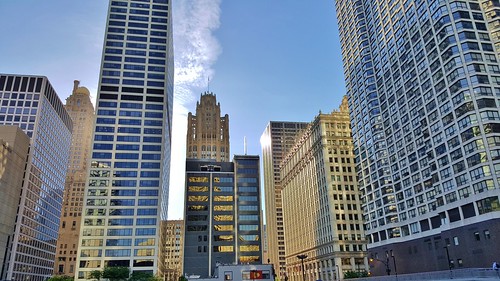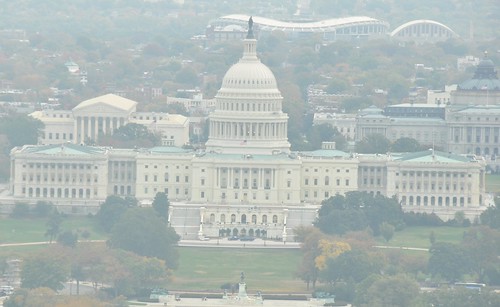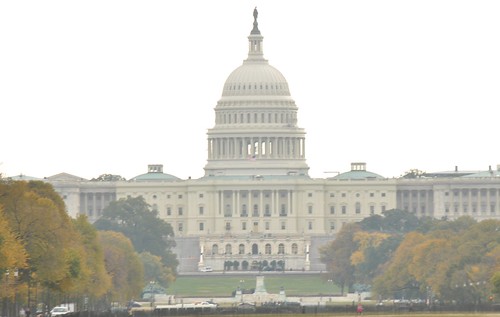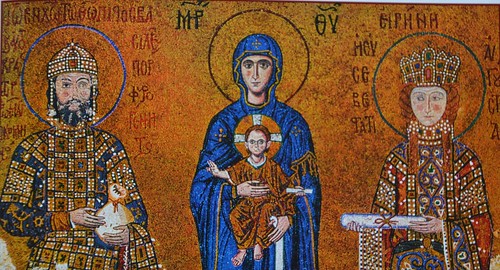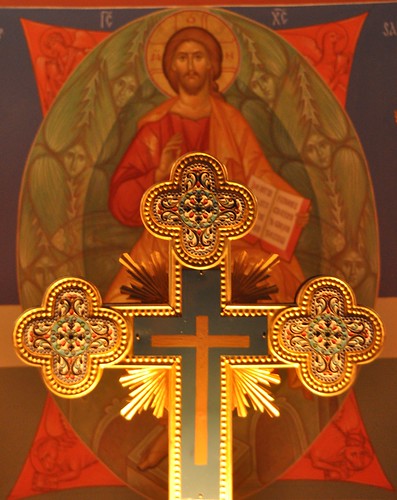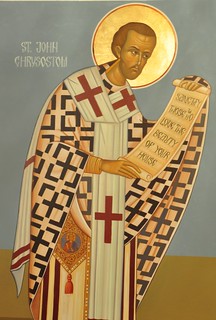 When we read a Gospel lesson like Luke 8:26-39 , the Gadarene Demoniac, we can easily get the impression that demons commonly haunt the earth and that demon possession is the most frequent problem confronting humanity. And that would be our impression if the only Scriptures we ever heard was the Sunday Gospel lessons of the Orthodox Church year. Yet if we study the Scriptures we note:
When we read a Gospel lesson like Luke 8:26-39 , the Gadarene Demoniac, we can easily get the impression that demons commonly haunt the earth and that demon possession is the most frequent problem confronting humanity. And that would be our impression if the only Scriptures we ever heard was the Sunday Gospel lessons of the Orthodox Church year. Yet if we study the Scriptures we note:
The word “demons” appears only 4 times in the entire Septuagint (Old Testament). However it appears 35 times just in the 4 Gospels – but then only 6 times in the rest of the New Testament.
The word “demon” appears only in the book of Tobit in the Old Testament. It appears 21 times in the 4 Gospels but nowhere else in the New Testament.
The notion of being “possessed by demons” – occurs only in the New Testament – 4 times in the Gospels and once in Acts.
Demon possession is not mentioned in the entire Old Testament and in fact demons are almost never mentioned in the Old Testament. So, when we come to the Gospels and suddenly demons seem commonplace, we can ask: What happened? Why do demons suddenly abound?
One thing that does happen in Israel is the invasion of pagan deities. Following Alexander the Great’s conquering of Israel came the arrival of pagan Hellenism – Greek paganism which was the bane of Israel in the time of the Maccabees. Then the pagan Roman Empire conquered Israel. Pagan temples and pagan signs emerged everywhere in Israel. The Jewish people readily accommodated to this reality, even some accepting these gods/deities in their midst, but these gods were considered to be nothing more than demons by faithful Jews and early Christians. Demonic influence spread throughout Israel with the influence of pagan Greek and Roman culture. What we see in the Gospels reflects this concern – that people were being made sick by becoming accustomed to pagan religion, and making demonic ideas part of their daily existence. Demonic influence and demonic possession took over the region as the Jewish people adapted to their political and religious reality and then even adopted some of these pagan Greek ideas.

In the Gospels, however, the demons themselves acknowledging the Lordship of Christ. These demons and the people they possess are telling Israel to return to and be faithful to the God of their ancestors. The people’s inability to recognize that The Lord is not just like one of the many gods was making them all mentally and spiritually ill. God was no longer the Lord of their lives, but rather they saw all gods as equal and thus all gods as demons. So they became possessed by demonic thinking. Jesus may have been very critical of Pharisaic Judaism and the religion of the temple priests, but He was not telling them paganism is a better alternative or a more acceptable alternative. Jesus came to rid the people of all false beliefs including wrong Jewish ideas as well as the pagan gods and demons.
In Deuteronomy 32, there is a song which Moses taught the people of Israel, rebuking them for their faithlessness, which says in part that
Jacob ate his fill;
Jeshurun grew fat, and kicked.
You grew fat, bloated, and gorged!
He abandoned God who made him,
and scoffed at the Rock of his salvation.
They made him jealous with strange gods,
with abhorrent things they provoked him.
They sacrificed to demons, not God,
to deities they had never known,
to new ones recently arrived,
whom your ancestors had not feared.
You were unmindful of the Rock that bore you;
you forgot the God who gave you birth. (32:15-18)

It was because the people forgot the Lord that they began to worship the pagan deities or demons. In our Gospel lesson, note that the man from whom the demons had been exorcised exactly did not forget God:
Now the man from whom the demons had departed begged Him that he might be with Him. But Jesus sent him away, saying, “Return to your own house, and tell what great things God has done for you.” And he went his way and proclaimed throughout the whole city what great things Jesus had done for him.
Note well that usually Jesus tells those whom He heals not to say anything to anyone, but here He commands this man living outside of Israel to proclaim what God has done for him. Perhaps when Christ is in Israel, Jesus feared that people would only misinterpret his powers as being demonic (Matthew 10:25, 12:24), whereas in the land outside of Israel, which was full of idols/demons, He wanted them to proclaim the one God above all the idols/demons.

We might also think about Adam and Eve trying to hide from God after sinning. Instead of coming to God for healing, they fear God will judge them and so they try to avoid God. This is exactly like the demons in the Gospel behave. They have no love for God, only fear. “What have I to do with You, Jesus, Son of the Most High God? I beg You, do not torment me!” The demons too want to hide from Christ precisely because they don’t love Him and they don’t want to have to bow before Him or to be embraced by His love.
“. . . the demons are violent and destructive, seeking injury and death of the human person; Jesus’ actions are liberating, restoring humans to tranquility and communion with self and others.” (Willard Swartley, COVENANT OF PEACE, p 98)
The demonic is visible wherever people are seeking destruction and injury for their fellow humans – the endless list of terrorists and murderers who attack children in school or worshipers in a synagogue. Or who send pipe bombs to politicians. It is Christ who brings sanity to us and tranquility and communion with God. We need to see the violence in our society for what it is. Like in Israel of 2000 years ago, all kinds of demonic ideas abound in our midst and our making us and our country insane.
But what to do, respond with more violence? As Christians we are called above all to be a people of prayer. To recognize that these people possessed by violence and demonic thoughts are still part of us – both human and American. We have to work to exorcise the demonic influence in our country through prayer and fasting. That’s exactly what our Lord Jesus Christ has taught us (Mark 9:29).
“The possessed and insane individual remains a brother who has even a greater need not to be held in contempt or rejected, but on the contrary to be loved and helped since he finds himself in a condition of great suffering. As St John Cassian teaches:
‘We shall not only never despise them but we shall even pray ceaselessly for them as for our own members and suffer along with them from the depths of our being and with all our hearts (for when ‘one suffers, all members suffer’ [1 Cor 12:26]).’
The Christian should feel bound up with their destiny, believing that his own spiritual destiny is linked to theirs, as each member of the body is linked to every other member.
‘We cannot possibly attain to perfection without these members or ours, just as we read that our forebears were unable to arrive at the fullness of the promise without us. As the Apostle says concerning them: ‘All these who were approved by the testimony of faith did not receive the promises, since God had provided something better for us so that they would not be perfected without us.[Hebrews 11:39-40]’
… It is quite evident that in the eyes of the Fathers the possessed remains a complete human being, for even though the demon occupies his body and soul, he continues to carry intact within him the indelible and unalterable image of God which constitutes his true being, his profound nature, and indeed his very humanity. In the face of this, possession is only an accident, a superficial deformity.” (Jean-Claude Larchet, MENTAL DISORDERS AND SPIRITUAL HEALING, pp 60-61)

Rather than seeing these American terrorists as “them”, we need to realize they are us and we as a culture have allowed these demonic ideas to become part of our lives. We all need to repent and turn to the Lord. There is a writing attributed to St. Macarius of Egypt which says:
“The Word of God is God. And the word of the world is world. There is a great difference and distance between the Word of God and the word of the world and between the children of God and the children of the world. For every begotten offspring resembles its proper parents. If, therefore, the offspring of the Spirit gives itself over to the word of the world and to earthly matters and to the glory of this age, it is stricken with death and perishes, whence it came into existence. For, as the Lord says, he is ‘choked and becomes unfruitful’ (Mk 4:19) from the Word of God who is surrounded by the cares of life and who is bound by earthly bonds. Likewise, one who is possessed by the fleshly desire, that is, a man of the world, if he desires to hear the Word of God, is choked and becomes like someone irrational. For being accustomed to the enticements of evil when such men hear about God, they are burdened by boring conversation and their minds are bored.” (Pseudo-Macarius, THE FIFTY SPIRITUAL HOMILIES, p 230)
Many are bored with hearing the Word of God and only want to hear the word of the world. They read and listen to their political extremist talk show hosts and web pages. They have filled their heads and hearts with demonic thoughts – “the word of the world” – and that is why they behave like the violent and destructive demons of the Gospel.
We also see in this why it isn’t enough for any individual just to change their mind, for they are not just acting alone but as part of a greater world experience/power. “The word of the world” is greater than any one individual, it is all around us just like the ocean is to all the creatures that live in it. We can’t just shake it off or get out of it. This is why we need to read the scriptures and to pray and attend church and worship God. It is why we need Holy Communion, the sacrament of confession, prayer and fasting.
 “You have heard that it was said, ‘You shall love your neighbor and hate your enemy.’ But I say to you, Love your enemies and pray for those who persecute you, so that you may be sons of your Father who is in heaven; for he makes his sun rise on the evil and on the good, and sends rain on the just and on the unjust. For if you love those who love you, what reward have you? Do not even the tax collectors do the same? And if you salute only your brethren, what more are you doing than others? Do not even the Gentiles do the same? You, therefore, must be perfect, as your heavenly Father is perfect.” (Matthew 5:43-48)
“You have heard that it was said, ‘You shall love your neighbor and hate your enemy.’ But I say to you, Love your enemies and pray for those who persecute you, so that you may be sons of your Father who is in heaven; for he makes his sun rise on the evil and on the good, and sends rain on the just and on the unjust. For if you love those who love you, what reward have you? Do not even the tax collectors do the same? And if you salute only your brethren, what more are you doing than others? Do not even the Gentiles do the same? You, therefore, must be perfect, as your heavenly Father is perfect.” (Matthew 5:43-48) “There may come a time when it will be possible for you to humiliate your worst enemy or even to defeat him, but in order to love the enemy you must not do it… The Greek language has another word [for love]. It calls it agape. Agape is more than romantic love. Agape is more than friendship. Agape is understanding, redemptive goodwill for all men. Agape is an overflowing love, a spontaneous love, which seeks nothing in return. And theologians would say that it is the love of God operating in the human heart. When you rise to love on this level you love all men, not because you like them, not because their ways appeal to you, not because they are worthful to you, but you love all men because God loves them. And you rise to the noble heights of loving the person who does the evil deed while hating the deed that the person does. And I think this is what Jesus means when he says, ‘Love your enemies.‘”
“There may come a time when it will be possible for you to humiliate your worst enemy or even to defeat him, but in order to love the enemy you must not do it… The Greek language has another word [for love]. It calls it agape. Agape is more than romantic love. Agape is more than friendship. Agape is understanding, redemptive goodwill for all men. Agape is an overflowing love, a spontaneous love, which seeks nothing in return. And theologians would say that it is the love of God operating in the human heart. When you rise to love on this level you love all men, not because you like them, not because their ways appeal to you, not because they are worthful to you, but you love all men because God loves them. And you rise to the noble heights of loving the person who does the evil deed while hating the deed that the person does. And I think this is what Jesus means when he says, ‘Love your enemies.‘” 

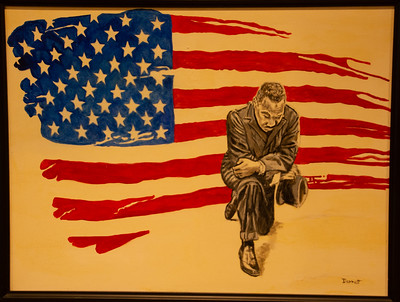

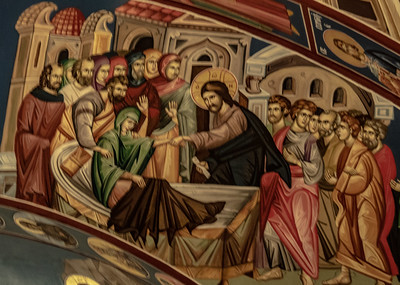



 When we read a Gospel lesson like
When we read a Gospel lesson like 



 The Permanent Representative of the Ecumenical Patriarchate to the World Council of Churches, Archbishop Job of Telmessos,
The Permanent Representative of the Ecumenical Patriarchate to the World Council of Churches, Archbishop Job of Telmessos,  For me this is an interesting comment which I hope the Ecumenical Patriarch actually believes when it comes to Orthodoxy in America. Archbishop Job thinks it a little strange that an Orthodox living in Ukraine does not want to be under the jurisdiction of Kiev. Isn’t it equally strange that these same bishops imagine that Orthodox in America should be under these foreign jurisdictions? Many of us Orthodox in America don’t want to be under Moscow or Constantinople but want to have exactly what Archbishop Job says – a local church administered by bishops in America. He sees autocepahly as the glue which holds together in unity the local church and the very thing which then unites that local church to all the other Orthodox Churches. Certainly that is what autocephaly can and should be in America. I hope these words words and this wisdom will be used to recognize just such an autocephalous Orthodox Church in America.
For me this is an interesting comment which I hope the Ecumenical Patriarch actually believes when it comes to Orthodoxy in America. Archbishop Job thinks it a little strange that an Orthodox living in Ukraine does not want to be under the jurisdiction of Kiev. Isn’t it equally strange that these same bishops imagine that Orthodox in America should be under these foreign jurisdictions? Many of us Orthodox in America don’t want to be under Moscow or Constantinople but want to have exactly what Archbishop Job says – a local church administered by bishops in America. He sees autocepahly as the glue which holds together in unity the local church and the very thing which then unites that local church to all the other Orthodox Churches. Certainly that is what autocephaly can and should be in America. I hope these words words and this wisdom will be used to recognize just such an autocephalous Orthodox Church in America.


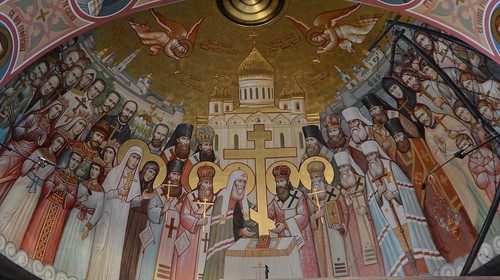
 What, then, shall we do? How ought we to proceed when, in the words of the Gospel, the harvest is great in our country (i.e., many remain unconverted to Jesus Christ)? “Pray to the Lord of the harvest,” Jesus Himself teaches us [Mt. 9:38]. Thus, first and foremost, we must pray. If even in everyday matters people fall back upon prayer – asking God’s blessing at the beginning of some work and then throughout asking for renewal and strengthening of the work’s might (where prayer means nothing more than help), here, in the matter of conversion, prayer becomes the means itself – and a most effectual of means, for without prayer one cannot expect success even under the most perfect of circumstances.
What, then, shall we do? How ought we to proceed when, in the words of the Gospel, the harvest is great in our country (i.e., many remain unconverted to Jesus Christ)? “Pray to the Lord of the harvest,” Jesus Himself teaches us [Mt. 9:38]. Thus, first and foremost, we must pray. If even in everyday matters people fall back upon prayer – asking God’s blessing at the beginning of some work and then throughout asking for renewal and strengthening of the work’s might (where prayer means nothing more than help), here, in the matter of conversion, prayer becomes the means itself – and a most effectual of means, for without prayer one cannot expect success even under the most perfect of circumstances.
